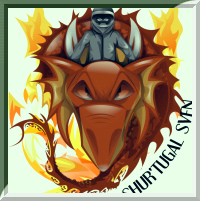
 |
|
The Not So Great Courses
This page has been created to house some lectures I have prepared relating to my forthcoming trip to South Africa in October-November 2014. They have been done in the hopeful expectation that my fellow travellers might find them useful in preparing for the trip. The idea of doing them and their nomenclature were inspired by being introduced to The Great Courses by, somewhat coincidentally, the very same friends who have organised the tour and who have happily adopted the moniker of Vink & Vink Inc. Maybe I might do more on other tours in the future. South Africa This is the first of my Not So Great Courses (and may well be the last). When watching them, I suggest you change the settings to 720 HD (the sproket at bottom right hand side of video frame when video starts); then click 'full screen'. The course consists of the following lectures: Lecture 1: Early Days The early Dutch colonists meet and displace the Khoikhoi in the areas around Capetown and as the Trekboers push north and east. As the Trekboers head further east, they encounter the Xhosa. The next generation of Dutch immigrants become the Voortrekkers and head north across the Orange and Vaal rivers. One group heads east over the Drakensburg while others continue north. Those that head north encounter Mzilikazi’s Ndebele before pushing them further north across the Limpopo River. A vanguard group ahead of the main Voortrekkers crosses the Drakensburg and follows the Oliphants River east – pretty much where we do the same. Watch the lecture here:
Lecture 2: Races and Relations An introduction to a few of the many races, tribes and clans inhabiting southern Africa from the time of the Bantu migrations of centuries past. The effect of colonisation on the Khoikhoi and San. The Frontier Wars against the Xhosa. The origin and rampaging of Ndebele under Mzilikazi; the Mthethwa and Ndwandwe and their respective chiefs Dingiswayo and Zwide, particularly their relationships with the Zulu; and, of course, the Zulu under Shaka and then his half-brother Dingane. Watch the lecture here:
Lecture 3: The Mfecane The Mfecane – the crushing or the scattering – was a period of upheaval, famine, displacement, refugees and widespread murder and mayhem. It affected the coastal region between the Drakensburg and the Natal coastline; and also the high veld in today’s Lesotho and parts of the Free State. Havoc was reeked by the Hlubi and Ngwane, who eventually met their fates in similar fashion. The Basotho nation emerged from this turmoil and the Zulu empire consolidated its gains. Watch the lecture here:
Lecture 4: The Zulu Empire Part 1: Voortrekkers and the Zulu Piet Retief leads his Voortrekker group across the Drakensburg down to the hinterland of Natal. Lots of Drakensburg passes. He negotiates with Dingane head of the Zulus. He’s murdered by Dingane who also attacks his laager. A commando of Voortrekkers seek revenge with disastrous consequences. Andries Pretorius comes to the rescue and leads a commando against Dingane with a victory at Blood River. Dingane’s successor, Mfande, collaborates with the Boers. Cetshwayo comes to the Zulu throne. Watch the lecture here:
Lecture 5: The Zulu Empire Part 2: British and the Zulu From the first British settlement at Port Natal relations between the settlers and the Zulu were uneasy. The Zulu mistrusted British intentions; and the British saw Zulu aggression and imperialism as inimical to British imperialism. Boer activities were also contrary to British imperial goals. The British finally moved against both Boer and Zulu. They invaded Zululand. The annihilation of British forces at Isandlwana and the VC-loaded victory at Rorke’s Drift play their roles in history. British victory over the Zulu comes at Ulandi. Watch the lecture here:
Lecture 6: Deeply entrenched social and political chasms were a constant hallmark of British Boer relations. Boer ambitions for their own sovereignty were always in conflict with British goals of dominance. However, there was a fractious coexistence until diamonds and especially gold triggered a series of changes in political balances and strategic priorities. This was the launching pad of the Anglo Boer wars. Watch the lecture here: |
